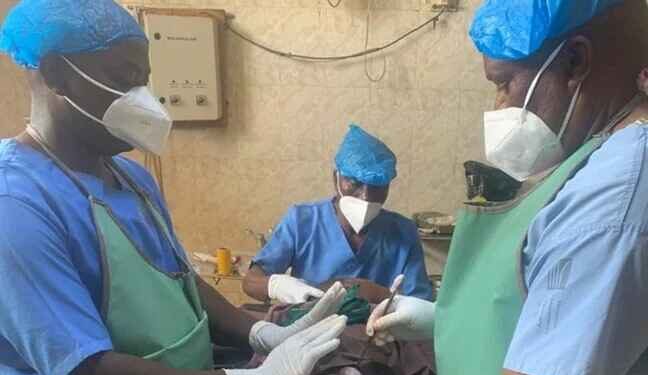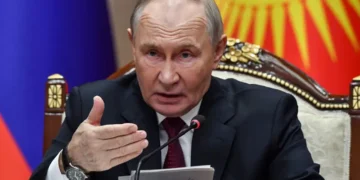Benin City, Nigeria — October 19, 2025
Governor Monday Okpebholo of Edo State has expressed strong disapproval of the seven-day warning strike declared by the Medical and Health Workers Union of Nigeria (MHWUN), describing the action as “unpatriotic, ill-timed, and unjustified.”
In a statement released on Sunday by the Commissioner for Communication and Orientation, Chris Nehikhare, the governor said the industrial action was “detrimental to the welfare of ordinary Edo citizens who depend heavily on public health services,” adding that the government had already taken steps to address the grievances raised by the workers.
“This strike, coming at a time when the government is making significant efforts to improve the health sector, is both unnecessary and insensitive,” the statement read.
“The administration remains committed to ensuring better working conditions for all health personnel, but we must pursue dialogue rather than disruption.”
Background of the Dispute
The MHWUN’s Edo State chapter had earlier announced a seven-day warning strike beginning on Monday to protest unpaid allowances, poor working conditions, and what it described as the government’s failure to implement certain agreements reached earlier this year.
Union officials claim that despite several correspondences and meetings, “nothing tangible” had been done to resolve long-standing issues such as hazard allowances, promotion arrears, and shortages of essential medical supplies in primary health centres across the state.
A senior union member who spoke to reporters under anonymity said:
“We have exhausted every peaceful avenue. Our members are overworked, underpaid, and under-protected. The strike is our last resort.”
Impact on Healthcare Services
As of Monday morning, several government hospitals and clinics in Benin City and other parts of Edo State were reportedly operating at reduced capacity.
Non-emergency services, including outpatient care, laboratory testing, and vaccination programs, were affected in many facilities.
However, the Edo State Ministry of Health has urged residents not to panic, assuring that emergency departments remain functional and that contingency plans have been activated to minimise service disruptions.
Government’s Response and Call for Dialogue
Governor Okpebholo appealed to union leaders to suspend the strike and return to the negotiation table. He emphasised that the state’s fiscal situation is challenging due to national economic pressures, but promised that the administration is exploring ways to prioritise health worker welfare.
“Industrial peace in the health sector is non-negotiable,” the governor said.
“We cannot allow this dispute to endanger lives or derail our progress in improving healthcare delivery.”
Public Reaction
Public opinion in Benin City appears divided. Some residents sympathise with the health workers’ plight, citing poor infrastructure and delayed pay, while others criticised the strike as ill-timed, particularly amid current health challenges such as rising malaria cases and shortages of essential drugs.
“We understand their pain, but ordinary people suffer the most when hospitals close,” said Mrs. Eseosa Omoregie, a teacher in Egor Local Government Area.
“The government and the unions must find a way to talk, not fight.”
What Happens Next
Union representatives have hinted that if the government fails to meet their demands within the seven-day window, a full-scale indefinite strike could follow.
Observers warn that such escalation might cripple the state’s healthcare system unless both parties reach a compromise soon.
The Edo State government, meanwhile, says it will continue to engage stakeholders and work toward a “sustainable resolution” that balances fiscal responsibility with fair labor practices.









